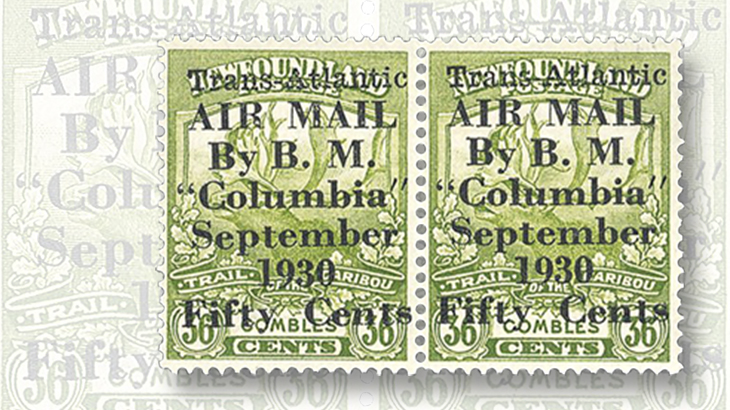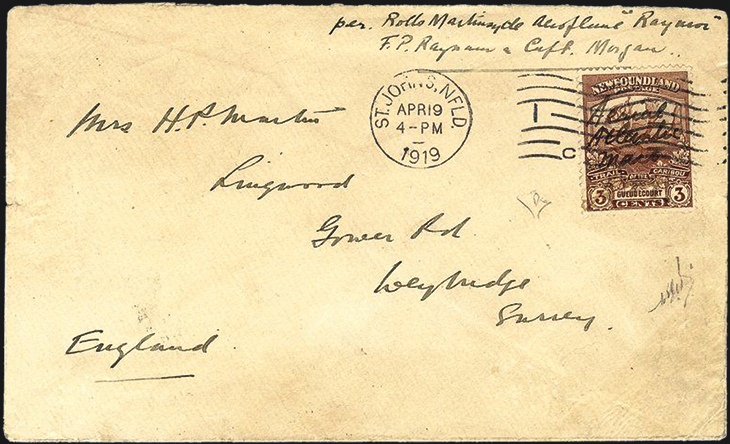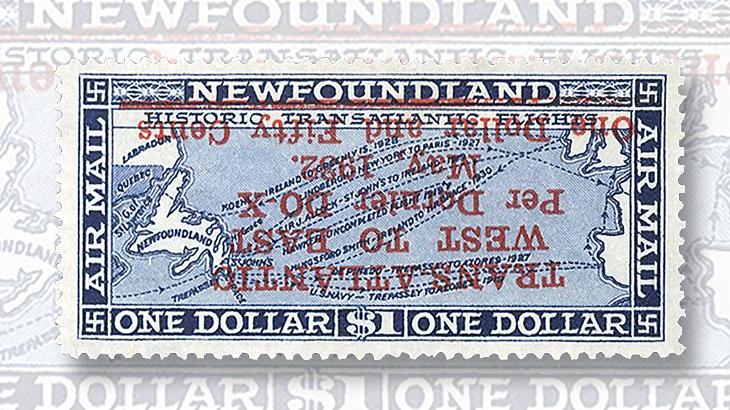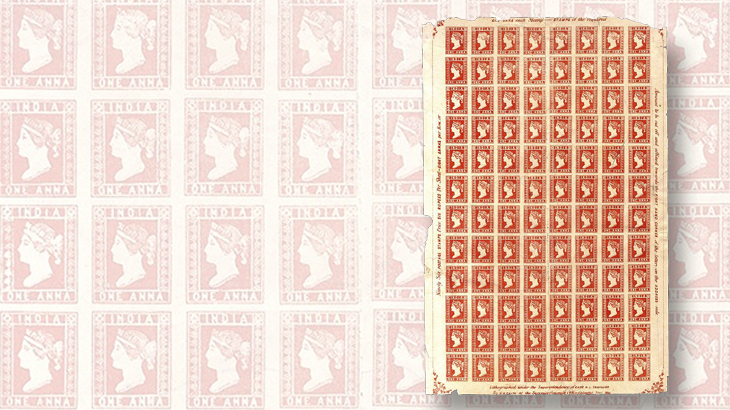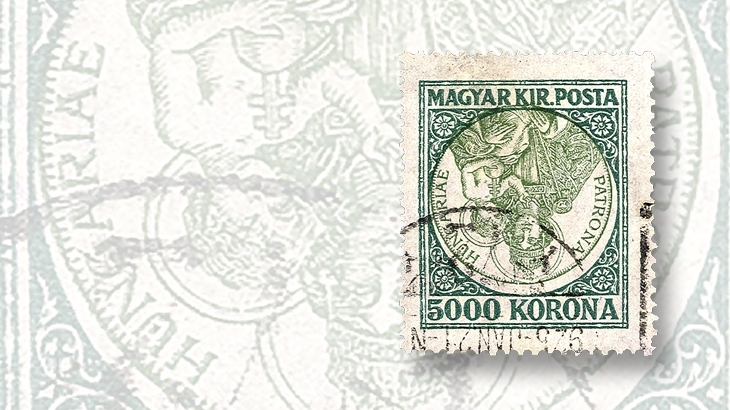World Stamps
Cherrystone brings Newfoundland airmail provisions to the auction block
By Matthew Healey, New York Correspondent
Cherrystone held a sale Feb. 23-24 in New York of United States and worldwide material, including some seldom-seen early Newfoundland airmail provisionals.
A 1919 cover with a 3¢ red brown Caribou stamp (Scott 117), bearing a manuscript overprint “Aerial Atlantic Mail / J.A.R.” is one of just 16 or so surviving from an aborted attempt to claim a £10,000 pound prize offered by Britain’s Daily Mail newspaper for the first successful nonstop flight across the Atlantic. Called “one of the most historically significant airmail covers in existence,” it sold for $26,450, including the 15 percent buyer’s premium Cherrystone adds to all lots.
The 50¢-on-36¢ Caribou provisional overprint for the flight of “Miss Columbia” in 1930 (Scott C5), was represented by two singles and a rare pair.
Connect with Linn’s Stamp News:
Like us on Facebook
Follow us on Twitter
Keep up with us on Instagram
Only 300 of these overprints were produced, and buyers were limited to one apiece, so surviving multiples are practically non-existent. Over half the stamps were used on mail carried on the flight, which successfully crossed the Atlantic from Harbour Grace to London, England. The unused, lightly hinged examples went for $5,175 each, while the pair fetched $16,100.
Another Newfoundland airmail with an inverted-overprint error, the 1932 DO-X $1.50-on-$1 surcharge (Scott C12a), exists in perhaps 20 to 40 examples, according to the auction description. It sold for $13,800.
A full sheet of 96 of India’s 1854 1-anna stamp, die II (Scott 4, Stanley Gibbons 14), with most marginal inscriptions intact, was described as a “spectacular showpiece.” It sold for $27,600.
A Hungarian inverted-center error on the 1925 First Madonna 5,000-korona stamp (Scott 386a) was described as sound, well-centered and lightly canceled by a Budapest-72 datestamp. Just one sheet of 100 of these inverts is thought to have been produced, with some 38 tied up in institutional collections and others displaying faults.
The example in the Cherrystone sale, which once belonged to Simon Wiesenthal, noted Nazi-hunter and philatelist, sold for $16,100.
MORE RELATED ARTICLES
Headlines
-
US Stamps
Oct 7, 2024, 3 PMMcMurtrie dismissed as APS education director following Sept. 21 arrest
-
US Stamps
Oct 7, 2024, 12 PMVasiliauskas named president of Mystic Stamp Co.
-
US Stamps
Oct 6, 2024, 5 PMApgar souvenir card available
-
US Stamps
Oct 6, 2024, 4 PMFirst Continental Congress and U.N. stamps receive Scott catalog numbers
